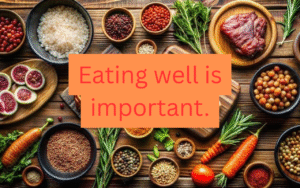Walking alone is often underestimated. In solitude, each step becomes a ritual of presence, a chance to reconnect with the body, the mind, and the rhythm of life. For the mature woman, walking alone is more than exercise—it is a healing practice that nurtures clarity, resilience, and inner calm.
Why Solitary Walking Matters
Research highlights that walking improves cardiovascular health, balance, and muscle tone (National Institutes of Health — www.nih.gov). Beyond the physical, solitary walking reduces stress, enhances creativity, and improves mental clarity (Harvard Health Publishing — www.health.harvard.edu). Walking alone creates a space for introspection without distraction, offering both mental and emotional restoration.
The Feminine Experience
For women, solitude is often culturally undervalued. Yet embracing time alone builds self-awareness, autonomy, and inner strength. According to the American Psychological Association (www.apa.org), moments of intentional solitude help regulate emotions, enhance decision-making, and cultivate resilience.
Practical Ways to Walk with Healing Intention
- Mindful Steps: Focus on each step, feeling the contact with the ground and the rhythm of your breath.
- Nature Immersion: Choose paths with greenery, water, or sunlight to enhance restorative effects.
- Digital Detox: Leave your phone aside to allow uninterrupted presence.
- Reflective Journaling: After walking, note thoughts, feelings, or insights gained during the journey.
- Ritualize the Practice: Choose consistent times or paths to make walking a daily sacred ritual.
Walking as Symbolic Practice
Every solitary walk can be a metaphor for life’s journey. Alone, a woman encounters her thoughts, her desires, and her intuition. She moves at her own pace, acknowledges her shadows, and celebrates her personal rhythm. Walking alone becomes a dialogue with the self, a gentle and powerful healing act.
Conclusion
The healing power of walking alone lies in its simplicity and accessibility. It strengthens the body, restores the mind, and nourishes the soul. For the mature woman, walking alone is not isolation—it is presence, empowerment, and quiet celebration of life.
Sources:
- National Institutes of Health — www.nih.gov
- Harvard Health Publishing — www.health.harvard.edu
- American Psychological Association — www.apa.org
- Cleveland Clinic — my.clevelandclinic.org




